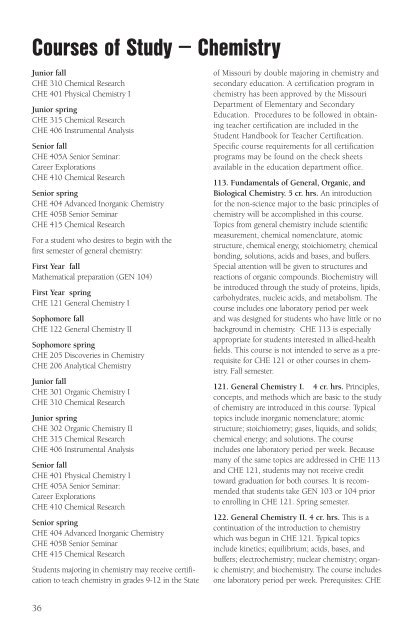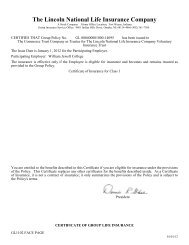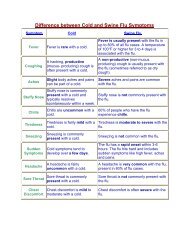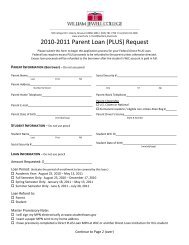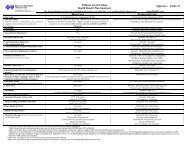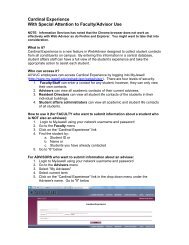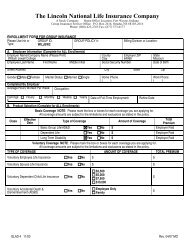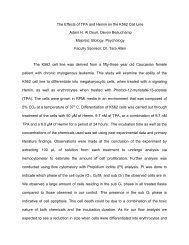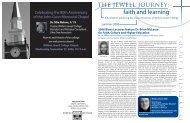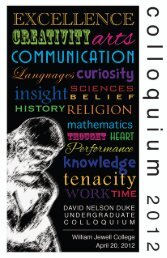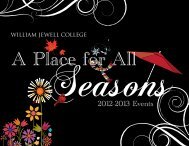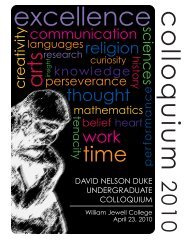Courses of Study - William Jewell College
Courses of Study - William Jewell College
Courses of Study - William Jewell College
Create successful ePaper yourself
Turn your PDF publications into a flip-book with our unique Google optimized e-Paper software.
<strong>Courses</strong> <strong>of</strong> <strong>Study</strong> – Chemistry<br />
Junior fall<br />
CHE 310 Chemical Research<br />
CHE 401 Physical Chemistry I<br />
Junior spring<br />
CHE 315 Chemical Research<br />
CHE 406 Instrumental Analysis<br />
Senior fall<br />
CHE 405A Senior Seminar:<br />
Career Explorations<br />
CHE 410 Chemical Research<br />
Senior spring<br />
CHE 404 Advanced Inorganic Chemistry<br />
CHE 405B Senior Seminar<br />
CHE 415 Chemical Research<br />
For a student who desires to begin with the<br />
first semester <strong>of</strong> general chemistry:<br />
First Year fall<br />
Mathematical preparation (GEN 104)<br />
First Year spring<br />
CHE 121 General Chemistry I<br />
Sophomore fall<br />
CHE 122 General Chemistry II<br />
Sophomore spring<br />
CHE 205 Discoveries in Chemistry<br />
CHE 206 Analytical Chemistry<br />
Junior fall<br />
CHE 301 Organic Chemistry I<br />
CHE 310 Chemical Research<br />
Junior spring<br />
CHE 302 Organic Chemistry II<br />
CHE 315 Chemical Research<br />
CHE 406 Instrumental Analysis<br />
Senior fall<br />
CHE 401 Physical Chemistry I<br />
CHE 405A Senior Seminar:<br />
Career Explorations<br />
CHE 410 Chemical Research<br />
Senior spring<br />
CHE 404 Advanced Inorganic Chemistry<br />
CHE 405B Senior Seminar<br />
CHE 415 Chemical Research<br />
Students majoring in chemistry may receive certification<br />
to teach chemistry in grades 9-12 in the State<br />
<strong>of</strong> Missouri by double majoring in chemistry and<br />
secondary education. A certification program in<br />
chemistry has been approved by the Missouri<br />
Department <strong>of</strong> Elementary and Secondary<br />
Education. Procedures to be followed in obtaining<br />
teacher certification are included in the<br />
Student Handbook for Teacher Certification.<br />
Specific course requirements for all certification<br />
programs may be found on the check sheets<br />
available in the education department <strong>of</strong>fice.<br />
113. Fundamentals <strong>of</strong> General, Organic, and<br />
Biological Chemistry. 5 cr. hrs. An introduction<br />
for the non-science major to the basic principles <strong>of</strong><br />
chemistry will be accomplished in this course.<br />
Topics from general chemistry include scientific<br />
measurement, chemical nomenclature, atomic<br />
structure, chemical energy, stoichiometry, chemical<br />
bonding, solutions, acids and bases, and buffers.<br />
Special attention will be given to structures and<br />
reactions <strong>of</strong> organic compounds. Biochemistry will<br />
be introduced through the study <strong>of</strong> proteins, lipids,<br />
carbohydrates, nucleic acids, and metabolism. The<br />
course includes one laboratory period per week<br />
and was designed for students who have little or no<br />
background in chemistry. CHE 113 is especially<br />
appropriate for students interested in allied-health<br />
fields. This course is not intended to serve as a prerequisite<br />
for CHE 121 or other courses in chemistry.<br />
Fall semester.<br />
121. General Chemistry I. 4 cr. hrs. Principles,<br />
concepts, and methods which are basic to the study<br />
<strong>of</strong> chemistry are introduced in this course. Typical<br />
topics include inorganic nomenclature; atomic<br />
structure; stoichiometry; gases, liquids, and solids;<br />
chemical energy; and solutions. The course<br />
includes one laboratory period per week. Because<br />
many <strong>of</strong> the same topics are addressed in CHE 113<br />
and CHE 121, students may not receive credit<br />
toward graduation for both courses. It is recommended<br />
that students take GEN 103 or 104 prior<br />
to enrolling in CHE 121. Spring semester.<br />
122. General Chemistry II. 4 cr. hrs. This is a<br />
continuation <strong>of</strong> the introduction to chemistry<br />
which was begun in CHE 121. Typical topics<br />
include kinetics; equilibrium; acids, bases, and<br />
buffers; electrochemistry; nuclear chemistry; organic<br />
chemistry; and biochemistry. The course includes<br />
one laboratory period per week. Prerequisites: CHE<br />
36


